DONALD McGILL ‘VEGAN’ POSTCARD – circa 1918
PUBLISHER- INTER ART COMIQUE SERIES 2387
.
JACK SPRAT COULD EAT NOT FAT
AND HIS WIFE COULD EAT NO LEAN
AND SO BETWEEN THEM BOTH
They decided that, having already given up Tea,
Sugar, Jam, Potatoes, Butter, Cheese and Eggs,
THEY WOULD ALSO GIVE UP MEAT.
.
The original postcard is in our Ernest Bell Library.
We have no idea of what Jack was smoking in his pipe!
This is our first post of 2014 – …..which is, in theory, our 80th year, as the library was ‘started’ in 1934 – https://www.happycow.net/blog/remembering-vegetarian-pioneers-henry-s-salt-ernest-bell/ – we do still have quite a number of the original items.
In 1897 Donald McGill was apprenticed to Arnold F. Hills’ – Thames Ironworks, Shipbuilding, and Engineering Company – where he stayed until 1907.
In these years Arnold F. Hills was President the London Vegetarian Society, the Vegetarian Cycling Club, the Vegetarian Federal Union and a London Vegetarian Rambling Club.
We speculate that Donald McGill may well have met Josiah Oldfield, Charles W. Forward & other acquaintances of Arnold F. Hills.
From – http://www.worldwar1postcards.com/comic-cards.php
Donald McGill – one of the best known of all comic postcard artists – had a career which spanned 54 years. Born into a middle-class family in 1875, he was one of seven children and as a child attended a private school in Blackheath. At the age of sixteen, McGill lost a foot in an accident while playing rugby and was fitted with an artificial one. After attending art school he worked as a naval architect for some time and then as an engineering draughtsman.
.
In 1908, he became a postcard artist working from his home in Blackheath, Kent. During his long career making people laugh, his jokes covered almost every subject imaginable. Including drunks, seaside, politics, transport, sport, fashion, children, vicars, fat ladies, romance – and many social and military topics during the Great War.
.
It has been estimated that during his career, McGill produced around 10,000 different postcard designs and with a mischievous sense of humour, illustrations and comments about women’s undergarments was one of his favourite subjects for saucy postcards.
From – http://en.wikipedia.org/wiki/Donald_McGill
Donald Fraser Gould McGill, (28 January 1875 – 13 October 1962) was an English graphic artist whose name has become synonymous with a whole genre of saucy seaside postcards that were sold mostly in small shops in British coastal towns.
George Orwell writing about Donald McGill
From – http://www.george-orwell.org/The_Art_of_Donald_McGill/0.html
~ Who Donald McGill is, I do not know. He is apparently a trade name, for at least one series of post cards is issued simply as ‘The Donald McGill Comics’, but he is also unquestionable a real person with a style of drawing which is recognizable at a glance. Anyone who examines his post cards in bulk will notice that many of them are not despicable even as drawings, but it would be mere dilettantism to pretend that they have any direct aesthetic value. A comic post card is simply an illustration to a joke, invariably a ‘low’ joke, and it stands or falls by its ability to raise a laugh. Beyond that it has only ‘ideological’ interest. McGill is a clever draughtsman with a real caricaturist’s touch in the drawing of faces, but the special value of his post cards is that they are so completely typical. They represent, as it were, the norm of the comic post card. Without being in the least imitative, they are exactly what comic post cards have been any time these last forty years, and from them the meaning and purpose of the whole genre can be inferred. ~
If anyone would like a high res. scan of the postcard – just send an email to: – humanitarianleague (at) outlook (dot) com – or message me through HappyCow – https://www.happycow.net/blog/author/JohnnySensible/
How do we secure these items?
The Ernest Bell Library is in touch with more than 300 specialist dealers around the world.
……so we have at least 300 pairs of eyes continuously looking for examples of quirky ephemeral material such as these!
Books & metal items often survive fairly well.
Magazines, posters, booklets & leaflets rarely survive.
The Ernest Bell Library
The Ernest Bell Library is actively building a collection of examples of marketing activities related to: –
-
veg(etari)an products.
-
veg(etari)an books & other publications.
-
veg(etari)an organisations.
-
veg(etari)an businesses.
-
animal rights organisations.
-
animal rights publications.
-
humanitarian organisations.
-
humanitarian publications.
-
rambling clubs run by members of the above groups & related publications.

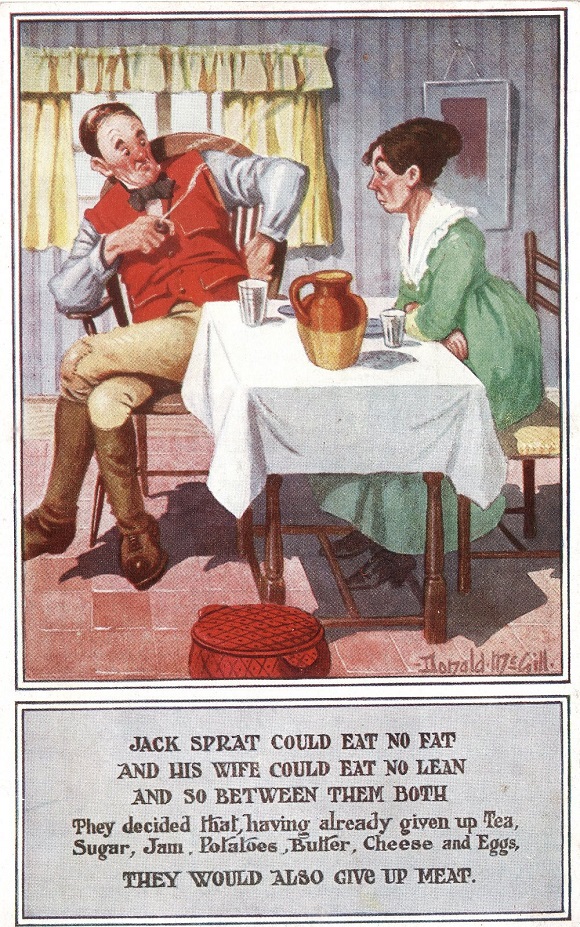
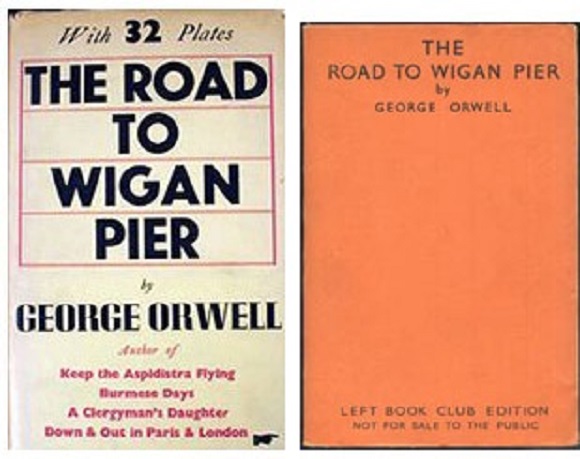

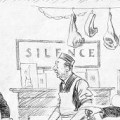
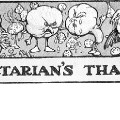
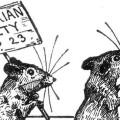
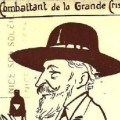
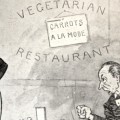
No Comments